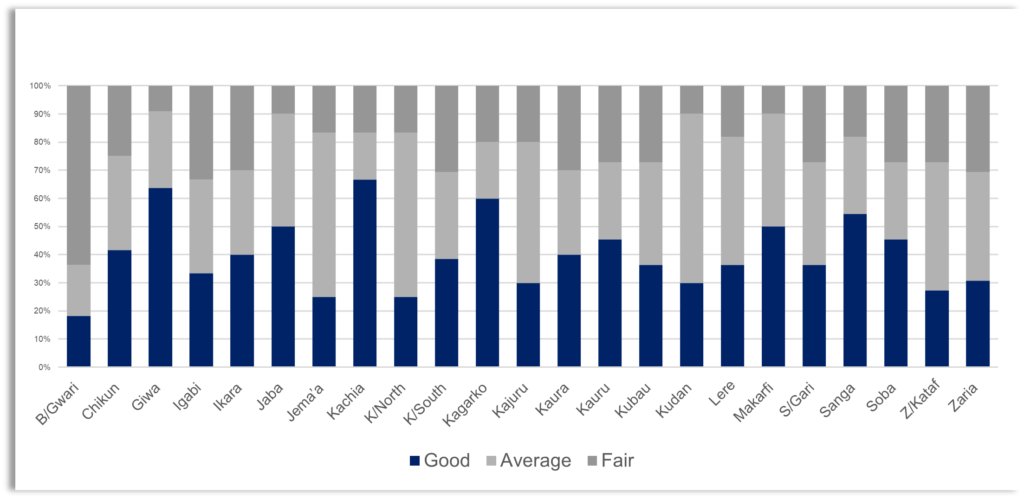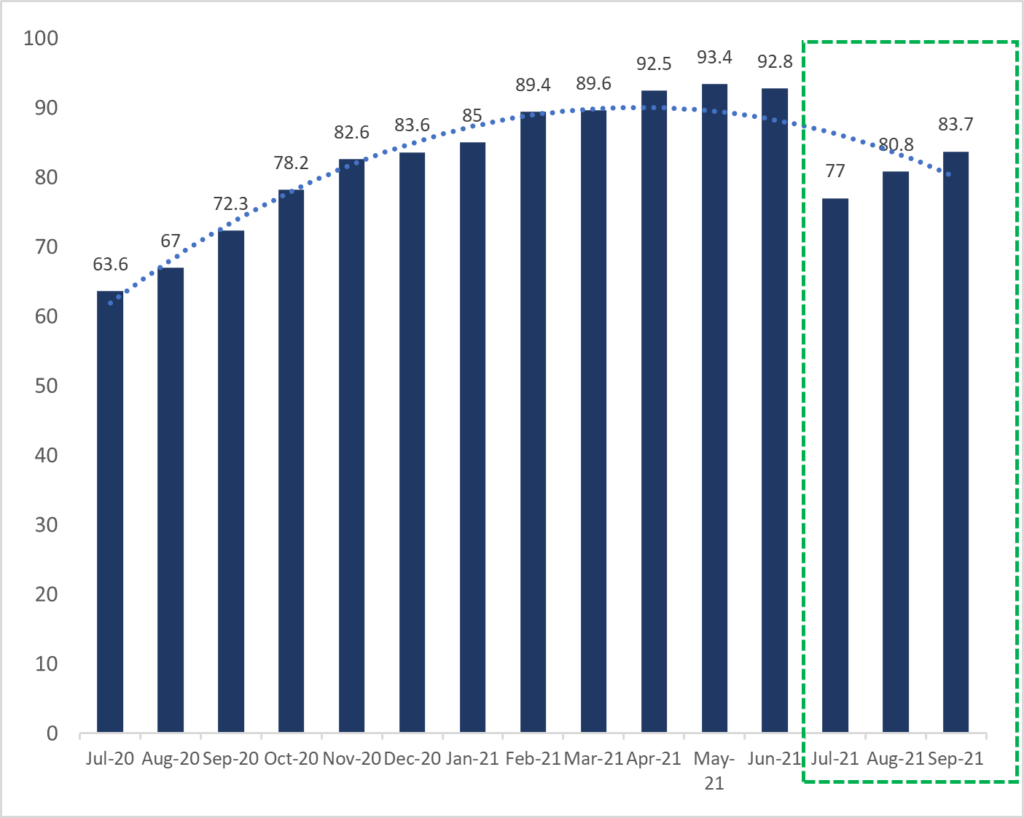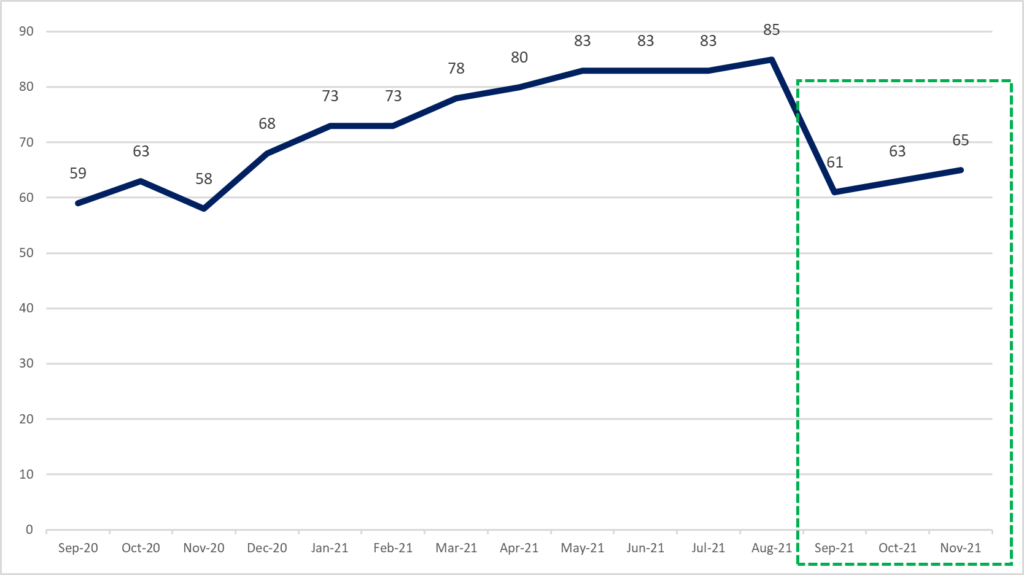Addressing the Data Quality Challenge in Kaduna State
An analysis of the Kaduna State routine health information system revealed major gaps in its organizational, technical, and behavioural determinants. As a result, generating credible data for decision-making remained a challenge in the state for many years. To resolve this issue, the state deployed some reactive efforts, including the Integrated Data Control Room (IDCR), routine Data Quality Assessment (DQA), State and Local Government Area (LGA) monthly data validation meetings, and quarterly Integrated Supportive Supervision (ISS). However, none of these achieved the desired results.
Having explored the high-cost reactive route without success, the state decided for a proactive intervention by engaging Local Technical Assistants (LTA). Among other benefits, this approach is adaptable to local context, designed to maximize potentials for data management, and allows for better decision making.
The LTA intervention was introduced to the Kaduna State health sector in July 2020, with Health Strategy and Delivery Foundation (HSDF) providing technical support to the state’s Primary Health Care Board (SPHCB); by giving expert advice, monitoring the implementation of fieldwork, and ensuring all activities are aligned with the intervention’s results framework.
So far, this intervention has been implemented in two phases. Phase I covered all the 255 priority PHC facilities from July 2020 – July 2021. Within this period, the LTAs worked with these facilities to provide support, handholding and mentoring to several categories of health workers, This includes facility-in-charges, Medical Record Officers (MRO), LGA Health Management Information System Officers (HMISOs), and Monitoring and Evaluation Officers. They were taught on data management on the National Health Management Information System (NHMIS) platform.
After the first phase, an assessment exercise revealed the status of the PHCs in all 23 LGAs. While 40% (102) of the total number had attained maturity level and could independently sustain the gains of the project, 36% (92) facilities required mentoring for another two months. However, the remaining 24% (61) facilities needed about six months of support from the LTAs to reach the desired potentials and sustain the approach.

Figure 1: Internal assessment analysis matrix showing the performance of the LGAs
With this development, a phase II no-objection approval was granted by the SPHCB through the donor to ensure continuous support to the 60% facilities that were yet to reach maturity. This phase lasted July-September 2021.
The fifteen-month LTA intervention has resulted in an upward trend in data quality scores and has proven to be a viable solution to the data quality challenge in Kaduna State.
Data Quality Assessment (DQA) improved from a baseline score of 63.6% in July 2020 to 92.8% in June 2021 (Figure 2). On the other hand, Data Demand and Use (DDU), which was 59% in September 2020 had attained 85% in August 2021 (Figure 3).


Overall, the stakeholders are pleased with the success of the LTA intervention. As such, approval has been granted for an extension that covered more facilities for an additional quarter (Q4 2021). More so, plans are underway to extend this intervention for another two years. A budget for this has been submitted to the state and is currently awaiting approval.
Expressing his delight about the intervention’s achievements, the Executive Secretary, Kaduna SPHCB remarked,
“for this intervention to thrive, I am passionate and determined for its scale-up to cover more facilities for at least two additional years. However, I will be glad if we could secure approvals for the engagement of an external M&E Firm to evaluate the achievements so far. If the outcome of the external evaluation is positive, it will serve as a strong backing for an extension and even replication in other states.”
Dr Hamza Abubakar
Executive Secretary, Kaduna State Primary Health Care Board
Grants and Business Development Specialist
We are seeking a highly motivated and experienced Grants and Business Development Specialist to join our organization. The successful candidate will be responsible for identifying funding opportunities, developing grant proposals, and fostering partnerships with potential donors and stakeholders (regional and global). This role plays a vital part in securing funds and resources to support our organization’s mission and projects.
Apply NowPublic Health Consultant, Guinea
The consultant (working with the Accelerator team) will collect results from the tool, organize a meeting with stakeholders to discuss results from the tool, and produce a report on key findings and recommendations from the tool to be shared publicly.
Apply NowPublic Health Associate, Senegal
We are currently in search of an experienced Public Health professional in Senegal to work on the anticipated Nutrition Capacity Development and Financing Platform and provide technical assistance to elevate nutrition financing and strengthen local capacity to support these efforts. The Associate must be bilingual (English and French).
Apply Now